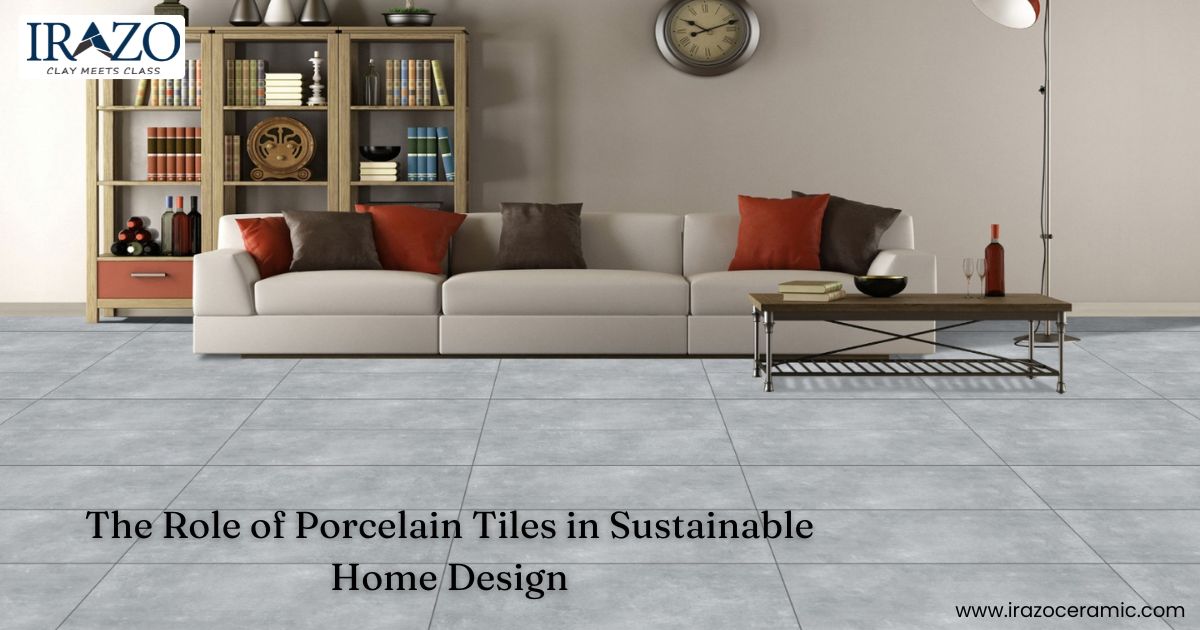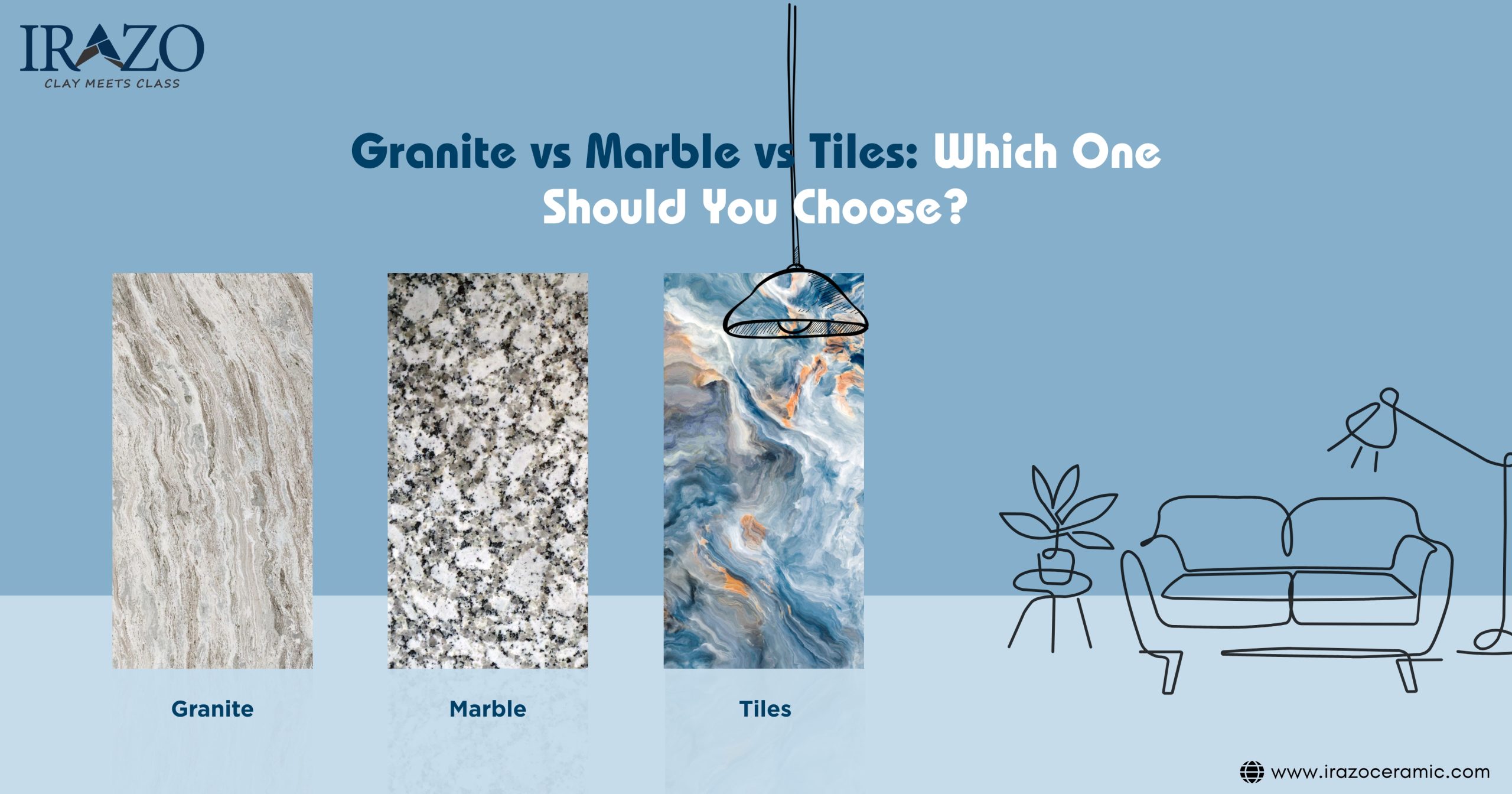- In sustainable home design, every material choice contributes to the overall eco-friendliness and efficiency of the space with porcelain tiles.
- Porcelain tiles are increasingly recognized for their sustainability, durability, and low environmental impact, making them a preferred choice for eco-conscious homeowners.
- Here’s an in-depth look at why porcelain tiles are essential for sustainable home design:
Role of Porcelain Tiles:
Here are the 6 key roles in porcelain tiles:
Environmentally Friendly Production Process
Low Emissions and Waste: Porcelain tiles are made primarily from natural materials like clay, feldspar, and quartz, and their production generates minimal waste. The manufacturing process for these tiles also involves low emissions, especially when compared to other flooring options.
Recycled Content: Some manufacturers incorporate recycled materials into porcelain tile production, reducing the need for raw material extraction and decreasing environmental impact.
High Durability Reduces Replacement Needs
Long-Lasting Material: Porcelain tiles are exceptionally durable, withstanding heavy foot traffic, scratches, and stains. This longevity means fewer replacements over time, reducing material waste and contributing to sustainable home design.
Cost-Efficiency: While the initial cost of porcelain can be higher, their long life makes them a cost-effective choice, lowering long-term maintenance and replacement costs.
Water-Resistant and Ideal for All Climates
Low Water Absorption Rate: Porcelain tiles are resistant to moisture and water, making them ideal for humid or wet areas like bathrooms and kitchens. This resistance reduces the risk of mold and mildew growth, which can harm indoor air quality and add maintenance costs.
Thermal Mass Properties: In both hot and cold climates, porcelain tile thermal mass helps regulate indoor temperatures. They retain heat in cooler seasons and remain cool in warmer weather, potentially reducing the need for heating and cooling.
Energy-Efficient Installation
Compatible with Radiant Heating Systems: It work efficiently with radiant heating systems, helping to evenly distribute heat across a room’s surface. This compatibility can lower energy costs and contribute to sustainable heating practices.
Efficient Installation and Maintenance: Once installed, porcelain tile require minimal maintenance, reducing the need for chemical cleaners. A simple sweep and mop suffice to keep them clean, which supports a healthier home environment and reduces chemical exposure.
Eco-Friendly Disposal and Recyclability
Non-Toxic and Safe for Disposal: Tiles do not release harmful chemicals upon disposal, making them a safe choice for the environment. When their lifespan ends, they can be disposed of without harmful impacts on landfills.
Recyclable Material: Some porcelain tiles are recyclable, and manufacturers can repurpose broken or unused tiles into new products, supporting circular manufacturing processes.
Aesthetic and Functional Versatility
Natural Appearance Options: Porcelain tiles are available in various styles, including designs that mimic natural wood, marble, and stone. These styles allow homeowners to achieve an eco-friendly aesthetic without using natural resources.
Wide Range of Applications: From floors to walls, tiles suit multiple applications, offering flexibility in home design without compromising sustainability.
Irazo Ceramic: Leading the Way in Sustainable Porcelain Tiles
Irazo stands out among porcelain tile manufacturers, especially in India, for its commitment to sustainability. The company integrates eco-friendly practices into every stage of production, from sourcing raw materials responsibly to optimizing manufacturing processes for minimal environmental impact. Their tiles not only meet high aesthetic standards but also adhere to rigorous sustainability criteria.
Conclusion
Porcelain tiles offer numerous sustainability benefits, from their durable nature to energy-efficient properties. Choosing porcelain tiles for your home contributes to a cleaner environment, reduces long-term costs, and aligns with eco-friendly design practices. Embrace the role of porcelain tiles in sustainable home design for a beautiful, resilient, and environmentally conscious living space.
References:
- Porcelain By Wikipedia [1].
Porcelain tiles are sustainable due to their natural materials, long lifespan, recyclability, low maintenance, and energy efficiency, making them an eco-friendly choice for durable and versatile home design.
Tiles play a key role in interior design by enhancing aesthetics, adding texture, and creating durable, easy-to-maintain surfaces. They offer versatility in style and function, transforming floors, walls, and even countertops to suit any decor theme.
Porcelain tile is ideal for high-traffic areas in homes or workplaces due to its durability and resistance to wear and discoloration. It also features excellent anti-slip properties, ensuring safety even without traction soles.



